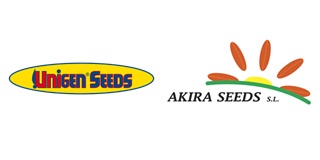
UNIGEN SEEDS SPAIN
Improved appearance was observed in coated grapes after 21 days refrigerated storage
Edible films have been studied as potential substitutes for conventional plastics in food packaging. Their development provides a new alternative for the application of hydrocolloids, following global trends of environmental preservation. Taking this into account, the aim of this study was to develop and evaluate physicochemical properties (thickness,
21 September, 2021
Edible films have been studied as potential substitutes for conventional plastics in food packaging. Their development provides a new alternative for the application of hydrocolloids, following global trends of environmental preservation. Taking this into account, the aim of this study was to develop and evaluate physicochemical properties (thickness, solubility in water and acid, water vapor permeability, opacity, tensile strength and elongation at break) of composite films based on corn starch (native, modified waxy or waxy) and gelatin, plasticized with glycerol or sorbitol. After this initial screening, the formulation presenting the physicochemical properties more appropriate was applied as an edible composite coating onto Red Crimson grapes to extend the shelf-life. The addition of gelatin significantly increased mechanical strength, solubility in water, permeability to water vapor, and thickness of the biofilms, while also decreasing the opacity. Composite films prepared with sorbitol had significantly lower permeability to water vapor and higher tensile strength than the films plasticized with glycerol. Improved appearance was observed in coated grapes after 21 days storage under refrigerated conditions, which had lower weight loss than the control group. Sensory evaluation showed that all the coatings did not affect acceptability scores.SourcesEdible films and coatings based on starch/gelatin: Film properties and effect of coatings on quality of refrigerated Red Crimson grapesFarayde Matta Fakhouria (b), Silvia Maria Martelli (a), Thiago Caon (c), Jos? Ignacio Velasco (d), Lucia Helena Innocentini Mei (b)a Faculty of Engineering, Federal University of Grande Dourados, Brazilb Department of Chemical Engineering, Campinas State University, Brazilc Department of Pharmaceutical Sciences, Federal University of Santa Catarina, Brazild Centre Catal? del Pl?stic, Universitat Polit?cnica de Catalunya, SpainPostharvest Biology and Technology, Volume 109, November 2015, Pages 57?64Picture by www.phoenixfruit.com.pe








